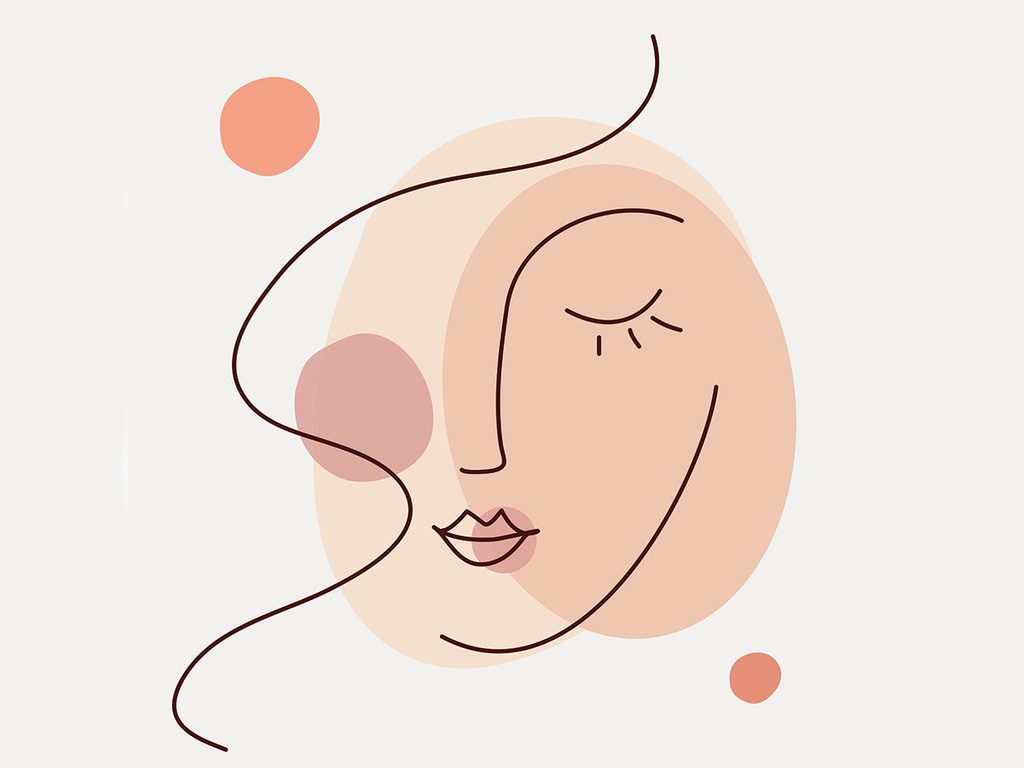Could Psychodermatology Be the Key to Healthier Skin?

It might be worth asking your dermatologist.
When a blemish appears on your skin, chances are you jump into repair mode. You examine it, review your arsenal of beauty products, and calculate the best treatment to clear it up immediately. You may even consider prevention tactics—analyzing your food diary to eliminate a potential trigger, or finally replacing that face mask—to ensure there are no reappearances. But then it returns. Why? Maybe you’re not treating the right thing. A new school of thought suggests that treating skin problems may have more to do with your mind.
What is psychodermatology?
“Original reports of the connection between the mind and the body have been around for hundreds of thousands of years, and we’re now rediscovering these connections,” says Mark Kirchhof, a certified dermatologist at Ottawa Derm Centre. The study of this relationship is called psychodermatology, which is the combination of psychiatry and dermatology. “It explores the interplay between the mind and the body—how skin diseases can affect the mind and how the mind can affect skin diseases,” says Kirchhof.
Recent interest in psychodermatology came from the finding that people who have skin diseases also typically have high levels of depression, anxiety and other psychiatric comorbidities. Researchers found that when those patients were treated for their skin disease, their psychiatric conditions improved. “Recently the reverse has been investigated—if we treat the mind, can the skin disease get better?” says Kirchhof. “That seems to be the case as well.”
How does psychodermatology work?
It comes down to the way the mind, the endocrine system, and the skin interact, says Kirchhof. Anxious thoughts, stressful situations, anger, and depression impact the nervous system. These thoughts can work their way from the brain, through the endocrine system, and show up on the face and body.
Skin conditions that can be caused by—and could cause—psychiatric conditions include psoriasis, eczema, hyperhidrosis, hives, cold sores and acne, says Kirchhof. How do you know when a skin condition has a psychiatric cause? A dermatologist can help with the assessment. “[Dermatologists] have lots of patients who are looking for alternative treatments, and we encourage them,” says Kirchhof. “If they don’t work, then we’re happy to add on treatments and prescription medications that can help.”
What are the treatments?
Treatment options vary from person to person. “Some conditions are more psychiatric and less dermatological and others are highly dermatological and less psychiatric,” says Kirchhof. The best form of treatment will depend on where the disease falls on this spectrum.
Studies show that if you treat the skin issues of people suffering from depression or anxiety, their symptoms will improve as well. For teenagers with severe acne and depression, Kirchhof will often treat the acne first. “Then, I’ll determine if their depression has resolved or if there’s still an underlying psychiatric disease that requires further treatment.”
Conversely, a recent study also showed those with depression or anxiety are at a higher risk of developing skin diseases such as psoriasis. The treatment? Taking antidepressants, which can protect against developing a skin disease. “Some of the medications and treatments that we might use in psychiatry may help in dermatology,” says Kirchhof, “and some of the treatments that we use in dermatology may help in psychiatry.”
If you suspect your mental health may be causing a particular skin condition, Kirchhof recommends first seeing a dermatologist and doing your research, then potentially reaching out to a psychiatrist. “Some psychiatrists may not be aware of these connections and may not entertain treating the psychiatric component to improve the skin disease,” he says. “Find a psychiatrist who is interested and willing to help in that regard.”
How much can stress impact your skin?
Stress, Kirchhof says, can impact skin diseases “tremendously.” It can cause skin disorders and also exacerbate current ones. “Studies show if you treat or lower stress, you can improve some skin conditions,” says Kirchhof. He often recommends treating both skin and psychiatric conditions with stress-reducing techniques, whether on their own or in conjunction with medication.
Studies show mindfulness, meditation, positive thinking, exercise, and cognitive behavioural therapy can have a positive impact on skin disease, says Kirchhof. “When we’re treating a severe skin disease, it appears that practicing mindfulness or meditation techniques make the treatments work better in those people than in groups that do not.”
So next time a mark or a flair-up appears, instead of jumping into repair mode, which will only increase your cortisol levels further, sink into relaxation mode. It might be just what the mark needs to heal—no pricey product necessary.




